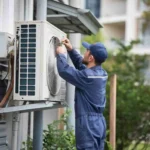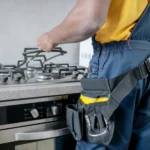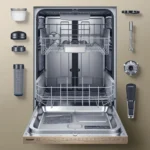Introduction
Modern households rely on washing machines as a crucial appliance, streamlining laundry chores and enhancing efficiency. However, choosing the right washing machine, maintaining it properly, and using it effectively can be challenging. This guide provides everything you need to know about washing machines, from selecting the best model to troubleshooting common problems and optimizing energy use.
Our Services:
Microwave Repair Service in Southern CaliforniaWasher Repair Service in Southern California
Freezer Repair Service in Southern California
Dishwasher Repair Service in Southern California
Refrigerator Repair Service in Southern California
How to Choose the Best Washing Machine
Key Factors to Consider
Selecting the perfect washing machine depends on various factors, including your household size, budget, and laundry habits. Here are some key aspects to consider:
Capacity
- If you have a large family, opt for a washing machine with a capacity of 4.5 cubic feet or more.
- Smaller households may find 3.5 cubic feet sufficient.
Loading Type
Decide between front load vs. top load washing machine pros and cons:
- Front-load machines are energy-efficient, use less water, and clean clothes more effectively.
- Top-load machines are easier to load, often have faster wash cycles, and cost less upfront.
Features
- Consider smart technology, different wash cycles, steam functions, and self-cleaning capabilities.
Budget
- Some of the best washing machines under $500 / $1000 offer great features without breaking the bank.
Front Load vs. Top Load Washing Machine: Which Is Better?
Comparison Table
Here’s a quick comparison:
FeatureFront LoadTop Load
Water Usage Less More
Energy Efficiency More Efficient Less Efficient
Cleaning Performance Better Moderate
Cost Higher Lower
Maintenance Requires more care Easier to maintain
Front-load washers generally outperform top-loaders in efficiency and cleaning, but top-loaders are more budget-friendly and easier to maintain.
How Does a Washing Machine Work?
Understanding the Washing Process
Knowing how a washing machine operates can help in making an informed decision:
Step-by-Step Process
- Water Intake: The machine fills with water according to the selected wash cycle.
- Agitation: The drum or agitator moves clothes around to remove dirt and stains.
- Rinsing: The water drains and fresh water rinses the clothes.
- Spinning: Excess water is removed by spinning the drum at high speeds.
- Drying (Optional): Some washers include built-in dryers for added convenience.
Washing Machine Features & Technology
Advanced Features in Modern Washers
Today’s washing machines come with advanced features that enhance efficiency and user experience:
Inverter Motor Technology
- This advanced motor adapts its speed based on the laundry load, optimizing performance while conserving energy. Read More: Riyadh AC Repair
Smart Washing Machines
- Equipped with Wi-Fi connectivity, these machines enable remote operation and monitoring through smartphone applications.
Additional Features
- Steam Wash: Helps in removing tough stains and sanitizing clothes.
- Noise Reduction Technology: Modern machines use insulation and quiet motors for silent operation.
- Quick Wash Cycles: Many new models have fast wash settings that clean clothes in under 30 minutes.
Best Energy-Efficient Washing Machines
Features to Look For
To save on utility bills, consider investing in an energy-efficient washing machine. Features to look for include:
- High RPM spin speed for better water extraction.
- Cold wash settings to reduce energy consumption.
- Load sensing technology to adjust water usage.
- Eco-Friendly Materials: Some machines use sustainable components to minimize environmental impact.
- Auto Shut-Off: Saves power when the machine is not in use.
Washing Machine Maintenance & Repair
Essential Maintenance Tips
To ensure longevity, follow these essential washing machine maintenance and repair tips:
Cleaning & Odor Prevention
- How to clean a washing machine drum: Run an empty hot cycle with vinegar and baking soda.
- Why does my washing machine smell? This usually happens due to mould and bacteria buildup.
Troubleshooting Common Issues
- How to fix a washing machine that won’t drain: Check for clogged filters, faulty pumps, or drainage hose issues.
- Common washing machine problems and solutions: Loud noises? Tighten loose drum bolts.
- Leaking water? Inspect door seals and hoses.
- Not spinning? Check the belt and motor.
Additional Maintenance Tips
- Best detergents for different machines: HE detergents for front-loaders, regular detergents for top-loaders.
- How often to service a washing machine: Scheduling professional maintenance every six months helps prevent major breakdowns.
Buying Guides & Comparisons
Finding the Right Washing Machine
Finding the right washing machine is easier with a good buying guide. Here are some common concerns:
Top Considerations
- Best compact washing machines for small apartments: Look for stackable or portable models.
- Which washing machines are the quietest? Front-load washers generally operate more quietly than top-loaders.
- Best washing machines for pet owners: Choose machines with specialized pet hair removal cycles.
- Affordable vs. premium washing machines: High-end models offer advanced features, but budget models can still be highly effective.
- Comparing washer-dryer combos vs. separate units: Washer-dryer combos save space, while separate units offer better performance.
Laundry Tips & Tricks
Optimizing Your Laundry Routine
Maximize your washing machine’s performance with these laundry tips:
Stain Removal & Washing Techniques
- How to remove tough stains using a washing machine: Pre-treat stains before washing and use hot water for whites.
- Best detergents for washing machines: Choose high-efficiency (HE) detergents for front-loaders and regular detergents for top-loaders.
- Can you wash your shoes in a washing machine? Yes, but use a gentle cycle and place shoes in a mesh bag.
- How to wash delicate clothes in a machine: Use cold water and a gentle cycle to prevent damage.
Preventing Damage & Enhancing Performance
- How to prevent fading of clothes: Wash dark and bright clothes in cold water and turn them inside out.
- Best ways to dry clothes after washing: Air-drying is energy-efficient, but modern dryers with moisture sensors prevent over-drying.
- How to remove pet hair from laundry: Use an extra rinse cycle and dryer sheets for better results.
- Sorting clothes before washing: Separate whites, darks, and delicate fabrics for optimal cleaning.
- Using vinegar in laundry: Softens fabrics and removes detergent residue.
Conclusion
A washing machine is a long-term investment, and selecting the right one can save time, money, and effort. Whether you need a budget-friendly option, a high-tech model, or a pet-friendly washer, knowing what to look for ensures you make the best choice. Proper maintenance and usage also extend the lifespan of your machine and improve washing efficiency.
By following these guidelines, you can make the most out of your washing machine and keep your laundry fresh and clean every time.

Eric
Eric is the founder and lead repair expert at Appliance Repair Southern California. With 17+ years of experience, he has built a reputation for providing fast, reliable, and high-quality repair services across Southern California. His expertise covers a wide range of appliances, including refrigerators, ovens, dishwashers, and washing machines. Eric is committed to exceptional customer service and ensuring every repair is done right the first time. Under his leadership, Appliance Repair Southern California continues to be a trusted name in the industry.







